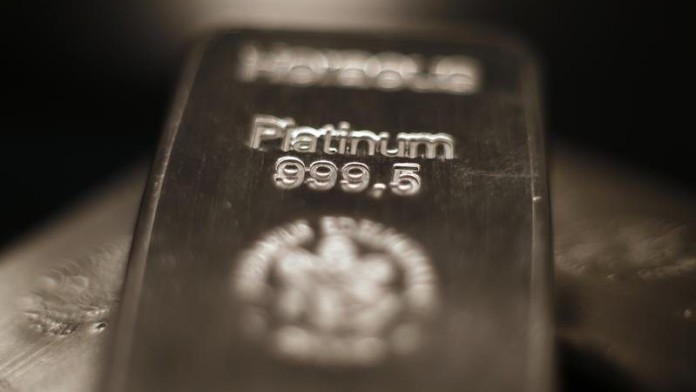
WHAT’S driving the platinum price? Two things, say analysts. Firstly automakers were caught short by the decline in demand growth for electric vehicles; certainly more than their official statements allow. Secondly, a deficit in primary supply.
In addition, investors are reticient to release metal; some, holding ETFs as far back as 2015, are waiting on a higher price before crystallising profits.
UBS estimates current refined platinum stockpiles among automakers are at their lowest since 2008, equal to 2.9 million ounces or about six months of net demand. There’s also only a month’s supply of palladium in inventory versus its 20 year historical average of about 10 months.
“I think that automakers were definitely under-inventoried for having to produce more internal combustion engine (ICE) vehicles, whether hybrid or pure ICE, and they’ve been caught with their pants down,” says Ed Sterck, head of research for the World Platinum Investment Council (WPIC).
Sterck doubts that surge in the platinum price during late May, just as London’s Platinum Week kicked off, was due to China jewellery import data. Historically, the import numbers weren’t exceptionally high, he says – although, it’s also worth remarking the WPIC is forecasting an 11% improvement in Chinese jewellery demand to 2,23 million oz this year, its highest level since 2018.
Rather it was the automakers that made the difference. “I don’t see why you would be carrying excess PGM inventories if you were going to be producing full electric vehicles,” says Sterck of automaker inventories.
On the investment side, owners of platinum ETFs, totalling about 3.2 million oz, may need further upside in the metal’s price before booking profits. Some positions date back to 2015, acquired at more than $1,500/oz in nominal terms, UBS says. It thinks a price of $2,100/oz may be needed before these holdings are mobilised. Investors might also think the market run in platinum is not yet done. “I could argue for increased investment in the space given the outlook that we see,” adds Sterck.
There’s also stockpiles in China acquired over five years totalling 3.9 million oz. Might that come on to the market? Probably not as they are held for reserve purposes, although platinum is not a reserve asset like gold.
Added up, might this market condition be enough to create major supply anxiety? Perhaps not quite yet, partly because miner inventories in South Africa are expected to unwind in the second half of this year. Half of an expected 25% increase in South African exports between July to December – about 280,000 ounces – will be a drawdown of excess stock.
From 2026, UBS estimates there will be around 450,000 oz of excess stock which is guided to unwind evenly over the next four years, equating to less than 1% of annual demand.
Nonetheless, the consensus view is for upward pressure on the platinum price. The WPIC said in its second quarter market overview last week that is expected platinum to be undersupplied to the tune of 850,000 oz, the third consecutive year of deficit.
Given the thinness of the market, rhodium is also expected to benefit. Palladium, however, is expected to move into market oversupply, limiting its price recovery this year.
“We expect palladium prices to worsen as persistent oversupply weighs on price activity, with some potential for modest disruption from anti-dumping duties in the USA,” said BMO Capital Markets analyst George Heppel and Frederic Bolton in a recent report.
“I don’t see really palladium having quite the same outlook as platinum,” says Sterck. “More than 80% of palladium goes into catalytic converters. So, you know, whilst we think that the electrification of the drivetrain is going to occur more slowly than people have been anticipating, it’s still going to occur.”











